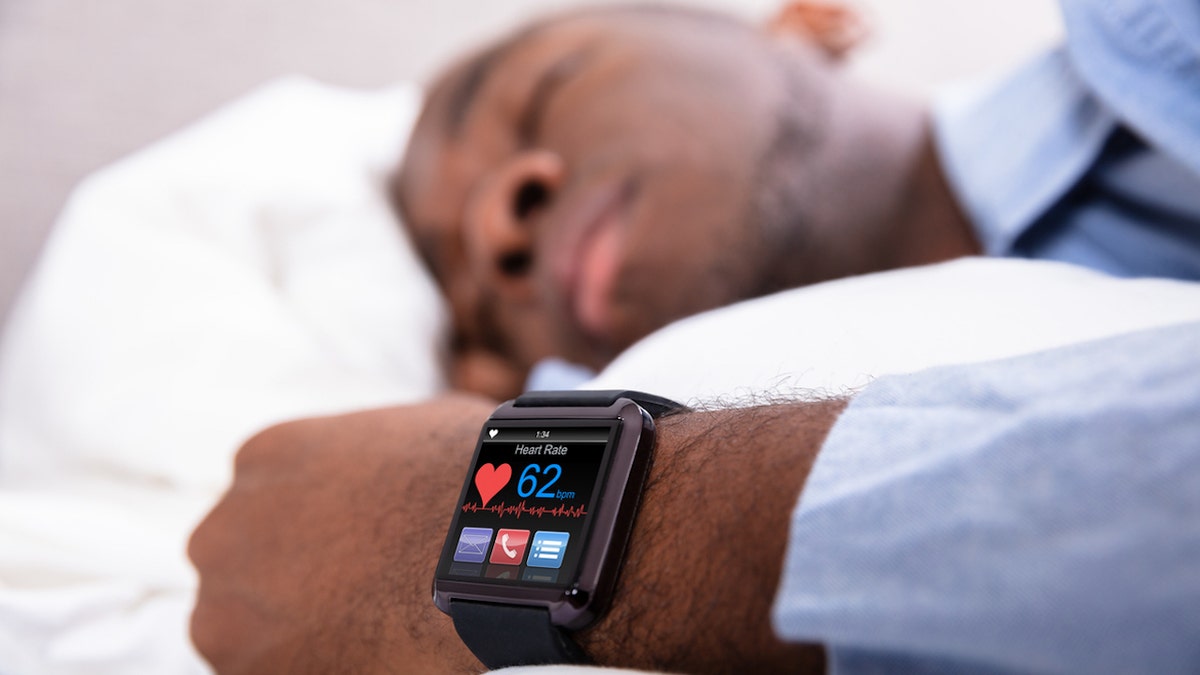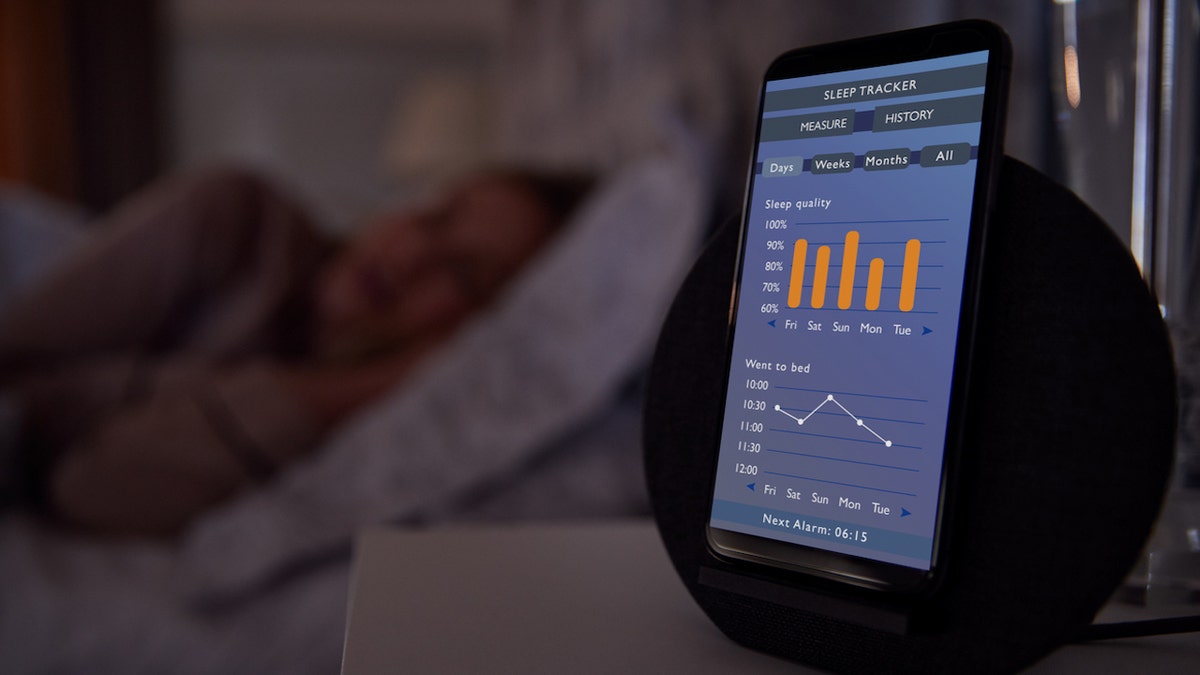The duration and quality of sleep are both essential to overall health, experts agree — but when does a focus on getting a good night’s sleep turn into a harmful fixation?
For some people, checking the data on their wearable sleep trackers can lead to a condition called “orthosomnia,” a name the Journal of Clinical Sleep Medicine coined to describe patients who are “preoccupied or concerned with improving or perfecting their wearable sleep data.”
Fox News Digital spoke with sleep neurologist and Ozlo Sleep medical advisory board member Meredith Broderick, M.D., about how to recognize the warning signs and ways to remedy the disorder.
FOR QUALITY SLEEP, TIMING IS EVERYTHING, EXPERTS SAY: HERE’S THE SECRET OF SUCCESSFUL SLUMBER
Sleep tracking can provide some important wellness benefits when used in a healthy way, noted Seattle-based Broderick.
“With sleep tracking, people are incentivized to improve their sleep routine and get more sleep because they’re paying attention to those metrics,” she said.
“For some people, tracking to understand and learn positive sleep habits can be helpful to achieve quality sleep.”
Those who are tracking their sleep in a healthy way may use the data to create a better sleep routine and may end up getting more sleep.
SURPRISING SLEEP TRENDS REVEALED IN NEW SURVEY, INCLUDING THE RISE OF ‘SCANDINAVIAN SLEEPING’
Healthy sleep tracking does not trigger anxiety or stress, Broderick pointed out.
“Ultimately, what makes the most meaningful difference is not the tracking itself, but actually adopting healthier routines and ensuring consistency long term,” she said.
Warning signs of orthosomnia
The condition of orthosomnia is characterized by an “obsessive pursuit of optimal sleep driven by sleep tracker data,” said Broderick.
Some indicators of the condition include frequently checking sleep tracking data, concern or anxiety around sleep data or “scores,” and an obsessive desire to optimize sleep data.

People with orthosomnia may find themselves obsessing over achieving a certain goal or constantly checking their sleep data, even throughout the night.
They may also think about their sleep data throughout the day, often feeling anxiety or stress about it.
DO WEIGHTED BLANKETS REALLY DELIVER A SLEEP FIX? HERE’S WHAT YOU NEED TO KNOW
“They may also feel anxious or unable to sleep if separated from sleep data,” Broderick said.
“Low scores can lead to stress, which can adversely affect sleep, while insufficient sleep can increase stress levels — creating a vicious cycle.”
“Some sleep trackers and wearables can contribute to orthosomnia by sending push notifications to phones that enable this anxiety.”
Ironically, the behaviors associated with orthosomnia can end up negatively affecting sleep.
“Low scores can lead to stress, which can adversely affect sleep, while insufficient sleep can increase stress levels — creating a vicious cycle,” Broderick warned.
Remedies for orthosomnia
For those who notice the warning signs of orthosomnia, Broderick recommends taking a short break from sleep tracking and trying to set healthy boundaries that are aligned with their health goals.
“If that doesn’t help, it’s time to bring it up with your doctor,” she said.
SLEEPING LONGER OVER THE WEEKEND COULD HELP PREVENT HEART ATTACKS, SAYS STUDY
“Sleep experts think there might be an underlying root cause, like anxiety or even certain perfectionistic tendencies, which leads some people to develop this unhealthy pattern,” said Broderick.
“Sometimes, there is a sleep disorder that needs to be evaluated and treated by a specialist, like chronic insomnia or sleep-disordered breathing.”

While technology can be an “incredible tool” for better sleep, Broderick emphasized that it must be based on science and each individual’s needs.
“If your sleep aid is causing you stress, it’s time to look for a new alternative,” she said.
CLICK HERE TO SIGN UP FOR OUR HEALTH NEWSLETTER
Orthosomnia is closely related to another condition called nomophobia, in which people have a fear of being away from their smartphones, Broderick noted.
In a 2019 article in the Journal of Family Medicine and Primary Care, nomophobia is described as “a psychological condition when people have a fear of being detached from mobile phone connectivity.”
“Remember that technology should make your life easier, not add anxiety or stress,” said Broderick.
For more Health articles, visit www.foxnews.com/health.
Read the full article here